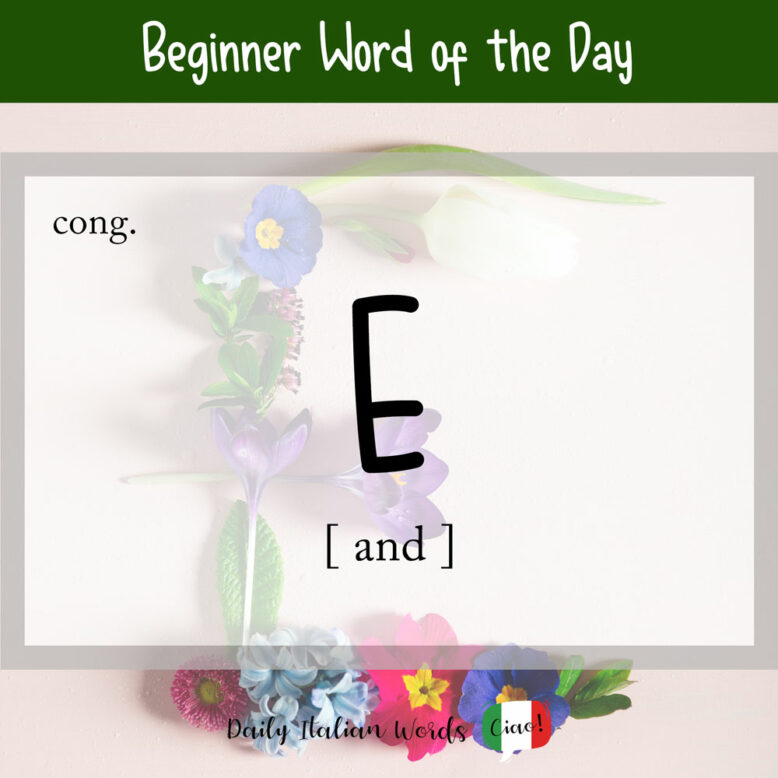Today we’re going to be talking about a very short yet extremely important word in Italian: e which means and.

Just as in English, e can join two nouns, verbs, adjectives, adverbs or sentences.
Ho guardato un film e poi sono andato a letto.
I watched a film and then I went to bed.

Similarly to how a almost always changes to an in English in front of a vowel (for example: an apple), e changes to ed in certain situations. This d is called a ‘euphonic d‘, generally occurring when the initial vowel of the following word is also e as in the examples below.
Mario ha chiuso la porta ed è uscito di casa.
Mario closed the door and left the house.
Lucia è colta ed elegante.
Lucia is educated and elegant.
In front of the vowels a / i / o / u, the euphonic d is normally omitted, though this ultimately comes down to the style and choice of the speaker. For example, either of the following sentences would be considered acceptable:
- Io e il mio amico = Correct
- Io ed il mio amico = Not incorrect but less common
According to Treccani, a specific situation where it is preferable to avoid using ed is when the following word also starts with the sound ed, such as for example, cortile ed edificio (courtyard and building). (But this doesn’t mean you won’t hear people using it!)
And if that wasn’t confusing enough, some speakers tend to drop the euphonic d even if the following word starts with an e. We can put this down to contemporary spoken Italian being far less strict than Florentine-based literary Italian.
Io e Enrico siamo amici da sempre.
Enrico and I have always been friends.

The moral of the story is that the more you speak and hear Italian, the more attuned your ear will become to when e sounds better than ed and vice versa.
Finally, as in English, you can start a phrase with e for emphasis. For example:
Paolo mi ha deluso. E io che pensavo fosse una persona affidabile!
Paolo disappointed me. And I thought he was a reliable person.
Heather Broster is a graduate with honours in linguistics from the University of Western Ontario. She is an aspiring polyglot, proficient in English and Italian, as well as Japanese, Welsh, and French to varying degrees of fluency. Originally from Toronto, Heather has resided in various countries, notably Italy for a period of six years. Her primary focus lies in the fields of language acquisition, education, and bilingual instruction.


